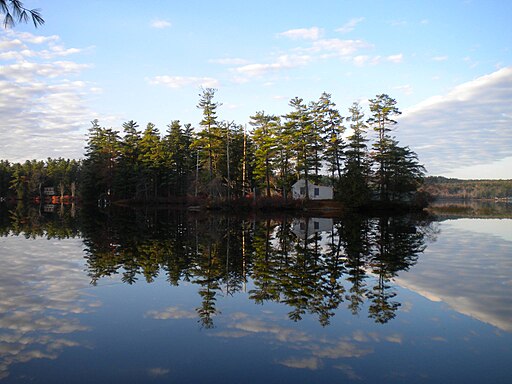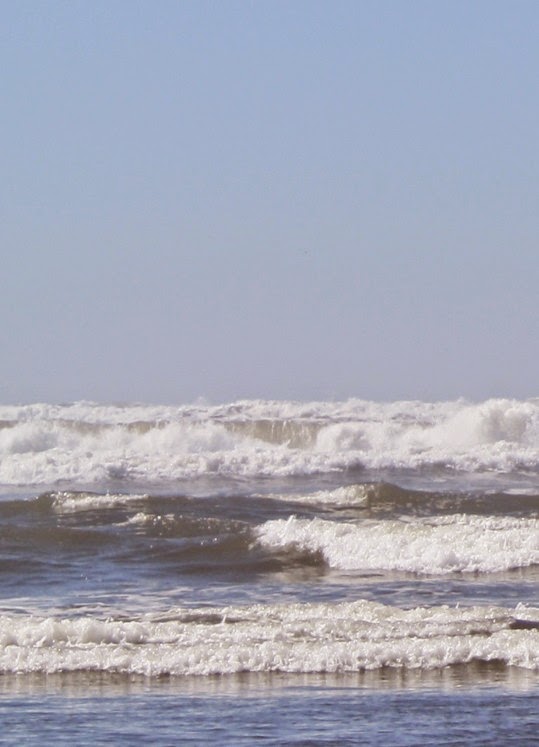 It's been a busy few weeks for the backlist. First, the passing of Robin Williams led to a run on my review of The Zen Path Through Depression. Then my article on Christopher Knight – "The North Pond Hermit" – trended as well. A quick Google search revealed that GQ had recently published an in-depth story about him.
It's been a busy few weeks for the backlist. First, the passing of Robin Williams led to a run on my review of The Zen Path Through Depression. Then my article on Christopher Knight – "The North Pond Hermit" – trended as well. A quick Google search revealed that GQ had recently published an in-depth story about him.The Strange And Curious Tale of the Last True Hermit is a remarkably sensitive and balanced account by Michael Finkel, the first journalist to win Christopher's trust… or at least enough of it to permit him to write a well-developed article. Reading it, I had the following thoughts:
o Apparently, Christopher really did live year-round in the Maine woods – in a tent, with no fire – for 27 years. I was not alone in doubting this part of his story; I've lived in Québec, and it's frankly difficult for me to imagine surviving even one night in the depths of that winter. In fairness, Christopher himself admits that even he barely did, sometimes. His greatest strength seems to be iron discipline, sticking to rigid protocols that allowed him, day after day, to meet critical challenges. My hat is off to him; I could never be so consistent for so long.
o As earlier accounts reported, Christopher possessed no firearms and offered no resistance when arrested. (Which didn't happen in his own camp, as I first believed, but at gunpoint, while burglarising a cabin.)
o I also predicted that we would soon learn troubling details about his saga, but this too has proven overly cynical. Though much of his past remains blank, everything released so far checks out. He really does seem to be nothing more than a guy who walked into the woods one day. (And who refuses to discuss his motivations for it.)
o He talks like the real thing. "More damage has been done to my sanity in jail, in [seven] months," he says, "than years, decades, in the woods." As a forest monk, I have no trouble believing that. And he has clear insight into his fate: "I stole. I was a thief. I repeatedly stole over many years. I knew it was wrong. Knew it was wrong, felt guilty about it every time, yet continued to do it." Believable perspective from a man who has been living in solitude; denial is a disease of the gregarious.
o It's interesting to note that in the woods he was always carefully groomed, but stopped shaving in jail. I also was more fastidious about my appearance on the mountain, in part to avoid attracting the attention of possible onlookers. Christopher claims his bushy, unkempt jail beard was a calendar; otherwise he had no way, in that barren, sterile environment, to gauge the passage of time. Again, credible.
o As it happens, he did meditate, but only when in danger. It worked, too: "I am alive and sane, at least I think I'm sane." But in spite of the article's title, Christopher isn't a true hermit. "When I came out of the woods they applied the label hermit to me," he told Finkel. "Then I got worried. For I knew with the label hermit comes the idea of crazy." (An impression that is totally accurate.) He was in fact a recluse: a person who lives in isolation for non-spiritual reasons.
o Mental health examiners suggest that Christopher may have Asperger's syndrome. Speaking as someone with close experience of this condition (think Sheldon on The Big Bang Theory), it's plausible. He was often cold, unresponsive, and impatient with Finkel; he sometimes voiced a high opinion of himself and disparaged perceived rivals – even famous confrère Henry David Thoreau – in adolescent terms. Tics not likely produced by three decades of solitude, which tends on the contrary to make difficult people (such as me) more friendly, loving, and mindful of others' worth.
o Another detail that may be counter-intuitional to the inexperienced: his camp turned out to be almost within sight of a cabin; isolation and distance are not always synonymous. He lived in a state of camouflage, just as I planned to do when I thought I'd have to sit my 100 Days on public land. The best defence is not to be seen in the first place.
o His difficulties with advancing age also ring true. He complained of the growing hardship of a lifestyle tailored to a man in his twenties, and shared my battle with failing eyesight, which he partially solved the same way: "I used my ears more than my eyes."
o Finally, and most fascinating, he did in fact gain profound existential insight out there, even though he wasn't a contemplative. "Solitude did increase my perception," he told Finkel. "But […] when I applied my increased perception to myself, I lost my identity. With no audience, no one to perform for, I was just there. […] To put it romantically: I was completely free." That's pretty much what happened to me, too. Interesting that Zen training apparently wasn't necessary – though it did get me there a few hundred months sooner.
Ultimately, my conviction that Christopher's story is essentially accurate as he reports it boils down to the following "Wisdom To Live By", surrendered at last to his chronicler after repeated pestering:
"Get enough sleep."
I learned the same thing, Out There.
UPDATE, 21 April 2015: The Lena Friedrich documentary on Christopher, formerly known as Hermythology, is now called The Hermit and has a Facebook page.
UPDATE, 7 July 2015: Christopher was released on parole in March. News releases quote both his attorney and the judge who decided his case as expressing confidence that he will transition smoothly back to civil life. Details here.
UPDATE, 8 March 2017: Finkel has just come out with a book about Christopher, entitled The Stranger in the Woods: The Extraordinary Story Of The Last True Hermit. (Even though, as I've explained, Christopher was not in fact a true hermit.) I haven't read this book yet.
UPDATE, 15 April 2020: Lena Friedrich has made her Christopher Knight documentary available free on Vimeo.
(Photo of the Maine camp country courtesy of Wikimedia Commons and a generous photographer.)






